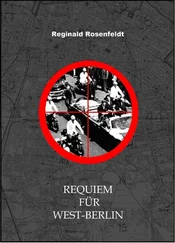Isaiah Berlin - Russian Thinkers
Здесь есть возможность читать онлайн «Isaiah Berlin - Russian Thinkers» весь текст электронной книги совершенно бесплатно (целиком полную версию без сокращений). В некоторых случаях можно слушать аудио, скачать через торрент в формате fb2 и присутствует краткое содержание. Год выпуска: 0101, Жанр: Старинная литература, на русском языке. Описание произведения, (предисловие) а так же отзывы посетителей доступны на портале библиотеки ЛибКат.
- Название:Russian Thinkers
- Автор:
- Жанр:
- Год:0101
- ISBN:нет данных
- Рейтинг книги:3 / 5. Голосов: 1
-
Избранное:Добавить в избранное
- Отзывы:
-
Ваша оценка:
- 60
- 1
- 2
- 3
- 4
- 5
Russian Thinkers: краткое содержание, описание и аннотация
Предлагаем к чтению аннотацию, описание, краткое содержание или предисловие (зависит от того, что написал сам автор книги «Russian Thinkers»). Если вы не нашли необходимую информацию о книге — напишите в комментариях, мы постараемся отыскать её.
Russian Thinkers — читать онлайн бесплатно полную книгу (весь текст) целиком
Ниже представлен текст книги, разбитый по страницам. Система сохранения места последней прочитанной страницы, позволяет с удобством читать онлайн бесплатно книгу «Russian Thinkers», без необходимости каждый раз заново искать на чём Вы остановились. Поставьте закладку, и сможете в любой момент перейти на страницу, на которой закончили чтение.
Интервал:
Закладка:
human beings-serfs-were viewed as 'baptised property', together with
a sense of impotence before the rule of injustice, stupidity and corruption, tended to drive pent-up imagination and moral feeling into the only channels that the censorship had not completely shut off-literature
and the. arts. Hence the notorious fact that in Russia social and political
thinkers turned into poets and novelists, while creative writers often
became publicists. Any protest against institutions, no matter what its
origin or purpose, under an absolute despotism is to ipso a political act.
Consequently literature became the battleground on which the central
social and political issues of life were fought out. Literary or aesthetic
questions which in their birthplace-in Germany or France-were confined to academic or artistic coteries, became personal and social problems that obsessed an entire generation of educated young Russians
not primarily interested in literature or the arts as such. So, for
example, the controversy between the supporters of the theory of pure
art and those who believed that it had a social function-a dispute that
preoccupied a relatively small section of French critical opinion during
the July Monarchy-in Russia grew into a major moral and political
,,
2.65

R U S S IAN T H INKERS
issue, of progress against reaction, enlightenment versus obscurantism,
moral decency, social responsibility, and human feeling against aut�
cracy, piety, tradition, conformity, and obedience to established
authority.
The most passionate and influential voice ofhis generation was that
of the radical critic Vissarion Belinsky. Poor, consumptive, ill-born,
ill-educated, a man of incorruptible sincerity and great strength of
character, he became the Savonarola of his generation-a burning
moralist who preached the unity of theory and practice, of literature
and life. His genius as a critic and his instinctive insight into the heart
of the social and moral problems that troubled the new radical youth
made him its natural leader. His literary essays were to him and to his
readers an unbroken, agonising, unswerving attempt to find the truth
about the ends of life, what to believe and what to do. A man of
passionate and undivided personality, Belinsky went through violent
changes of position, but never without having lived painfully through
each of his convictions and having acted upon them with the whole
force of his ardent and uncalculating nature until they failed him, one
by one, and forced him, again and again, to make a new beginning, a
task ended only by his early death. Literature was for him not a
mltitr, nor a profession, but the artistic expression of an all-embracing
outlook, an ethical and metaphysical doctrine, a view of history and
of man's place in the cosmos, a vision that embraced all facts and all
values. Belinsky was, first and foremost, a seeker after justice and
truth, and it was as much by the example of his profoundly moving
life and character as by his precepts that he bound his spell upon the
young radicals. Turgenev, whose early efforts as a poet he encouraged,
became his devoted and life-long admirer. The image of Belinsky,
particularly after his death, became the very embodiment of the committed man of letters; after him no Russian writer was wholly free from the belief that to write was, first and foremost, to bear witness
to the truth : that the writer, of all men, had no right to avert his
gaze from the central issues of his day and his society. For an artistand particularly a writer-to try to detach himself from the deepest concerns of his nation in order to devote himself to the creation of
beautiful objects or the pursuit of personal ends was condemned as
self-destructive egoism and frivolity; he would only be maimed and
impoverished by such betrayal of his chosen calling.
The tormented honesty and integrity of Belinsky's judgements-the
tone, even more than the content-penetrated the moral consciousness
1.66

FATHERS AND C H I LDREN
of his Russian contemporaries, sometimes to be rejected, but never to
be forgotten. Turgenev was by nature cautious, judicious, frightened
of all extremes, liable at critical moments to take evasive action; his
friend, the poet Yakov Polonsky, many years later described him to a
reactionary minister as being 'kind and soft as wax . . . feminine . . .
without character'.1 Even if this goes too far, it is true that he was
highly impressionable and liable to yield to stronger personalities all
his life. Belinsky died in I 848, but his invisible presence seemed to
haunt Turgenev for the rest of his life. Whenever from weakness, or
love of ease, or craving for a quiet life, or sheer amiability of character,
Turgenev felt tempted to abandon the struggle for individual liberty
or common decency and to come to terms with the enemy, it may well
have been the stern and moving image of Belinsky that, like an icon,
at all times stood in his way and called him back to the sacred task.
The Sportsman's Sketches was his first and most lasting tribute to his
dying friend and mentor. To its readers this masterpiece seemed, and
seems still, a marvellous description of the old and changing rural
Russia, of the life of nature and of the lives of peasants, transformed
into a pure vision of art. But Turgenev looked on it as his first great
assault on the hated institution of serfdom, a cry of indignation
designed to burn itself into the consciousness of the ruling class. When,
in I 879, he was made an Honorary Doctor of Laws by the University
of Oxford in this very place,• James Bryce, who presented him,
described him as a champion of freedom. This delighted him.
Belinsky was neither the first nor the last to exercise a dominating
inftuence on Turgenev's life; the first, and perhaps the most destructive, was his widowed mother, a strong-willed, hysterical, brutal, bitterly frustrated woman who loved her son, and broke his spirit.
She was a savage monster even by the none too exacting standards of
humanity of the Russian landowners of those days. As a child Turgenev
had witnessed abominable cruelties and humiliations which she inflicted
upon her serfs and dependants; an episode in his story The Brigadier
is apparently founded on his maternal grandmother's murder of one
of her boy serfs: she struck him in a fit of rage; he fell wounded on
the ground; irritated by the spectacle she smothered him with a
1 See S!Jornilt PusA!tit�sltogo doffla 110 I923 god (Petrograd, 19z:z), pp.
288-9 (letter to K. P. Pobedonostsev, r 88r).
• The Sheldonian Theatre, Oxford, in which a shortened version of this
lecture was delivered on 1 2 November 1970.
R U S S IAN T H INKERS
pillow •1 Memories of this kind fill his stories, and it took him his
entire life to work them out of his system.
It was early experience of scenes of this kind on the pan of men
brought up at school and university to respect the values of western
civilisation that was largely responsible for the lasting preoccupation
with the freedom and dignity of the individual, and for the hatred of
the relics of Russian feudalism, that characterised the political position
Читать дальшеИнтервал:
Закладка:
Похожие книги на «Russian Thinkers»
Представляем Вашему вниманию похожие книги на «Russian Thinkers» списком для выбора. Мы отобрали схожую по названию и смыслу литературу в надежде предоставить читателям больше вариантов отыскать новые, интересные, ещё непрочитанные произведения.
Обсуждение, отзывы о книге «Russian Thinkers» и просто собственные мнения читателей. Оставьте ваши комментарии, напишите, что Вы думаете о произведении, его смысле или главных героях. Укажите что конкретно понравилось, а что нет, и почему Вы так считаете.










